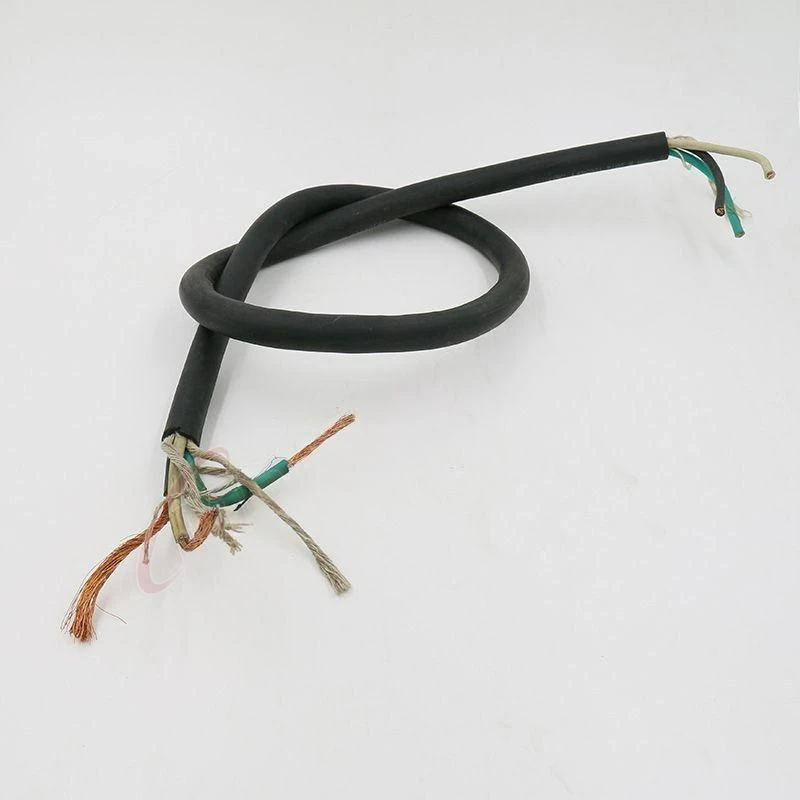Nov . 26, 2024 16:12 Back to list
Understanding Ground Cable Wires and Their Importance in Electrical Installations
Understanding Ground Cable Wire Importance and Applications
Ground cable wire plays a critical role in electrical systems by providing a safe pathway for electricity to flow in case of a fault. This essential component ensures that electrical equipment is properly grounded, helping to prevent electric shocks, equipment damage, and fire hazards. In this article, we will explore the importance, types, and applications of ground cable wire.
What is Ground Cable Wire?
Ground cable wire is designed to carry electrical current to the ground. It acts as a safety mechanism that redirects excess electricity to the earth in the event of a fault, such as a short circuit. When there is an electrical malfunction, a ground wire provides a low-resistance pathway for the current to dissipate safely, reducing the risk of injury or fire. Typically, ground wires are made of copper or aluminum due to their excellent conductivity properties.
Importance of Grounding
1. Safety One of the primary functions of grounding is to protect human life. In the event of a short circuit, a properly grounded system reduces the chance of electric shock by diverting harmful stray currents away from users.
2. Equipment Protection Grounding is essential for protecting electrical appliances and systems from damage. Without proper grounding, voltage surges can cause irreversible damage to sensitive electronic components, leading to costly repairs or replacements.
3. Fire Prevention Over time, electrical faults can lead to overheating circuits, increasing the risk of fire. Ground wires help to mitigate such risks by providing a controlled path for electrical currents, thus preventing potential fires.
Types of Ground Cable Wire
Several types of ground cable wire are available, each designed for specific applications
1. Bare Copper Ground Wire This is the most common type of ground wire. Being highly conductive and resistant to corrosion, it does not have any insulation. Bare copper wire is often used for grounding systems in residential and commercial buildings.
ground cable wire

2. Insulated Ground Wire This type of ground wire is covered with insulation, which provides additional protection and prevents accidental contact. Insulated ground wires are commonly used in environments where moisture is present.
3. Aluminum Ground Wire Lightweight and corrosion-resistant, aluminum ground wire is often used in overhead power lines and underground applications. This type of wire is typically less expensive than copper, making it a cost-effective choice for large projects.
Applications of Ground Cable Wire
Ground cable wire has a wide range of applications across various sectors
1. Residential Wiring In homes, ground wires are integral to electrical systems, connecting outlets, appliances, and service panels to the ground. This ensures that all electrical installations are safe and compliant with building codes.
2. Commercial and Industrial Settings Ground cable wire is vital in factories, warehouses, and commercial buildings, where heavy machinery and complex electrical systems are present. Proper grounding is necessary to protect both personnel and machinery from electrical faults.
3. Telecommunications Grounding is crucial for telecommunications equipment to prevent damage from electrical surges and lightning strikes. Ground cable wire ensures that sensitive equipment remains operational without interruption.
4. Data Centers In data centers, grounding helps to maintain the integrity of servers and networking equipment. A well-designed grounding system protects against power anomalies and contributes to system reliability.
Conclusion
Ground cable wire is an often-overlooked yet essential component in electrical systems. Its primary purpose is to provide safety and protection from electrical faults. By understanding its importance, types, and applications, individuals and businesses can ensure their electrical systems are appropriately grounded, thereby safeguarding lives and equipment. Whether for residential use, commercial applications, or industrial settings, grounding is a crucial practice that should never be neglected.
Share
-
Y Strainers: Protecting Your Pipes with PrecisionNewsAug.27,2025
-
Wafer Type Butterfly Valves: Reliable Flow Control SolutionsNewsAug.27,2025
-
Wafer Type Butterfly Valves: Essential Components for Efficient Flow ControlNewsAug.27,2025
-
Reliable Flow Control with High-Quality Check ValvesNewsAug.27,2025
-
Reliable Flow Control with Gate ValvesNewsAug.27,2025
-
Innovative Check Valves for Reliable Flow ControlNewsAug.27,2025


